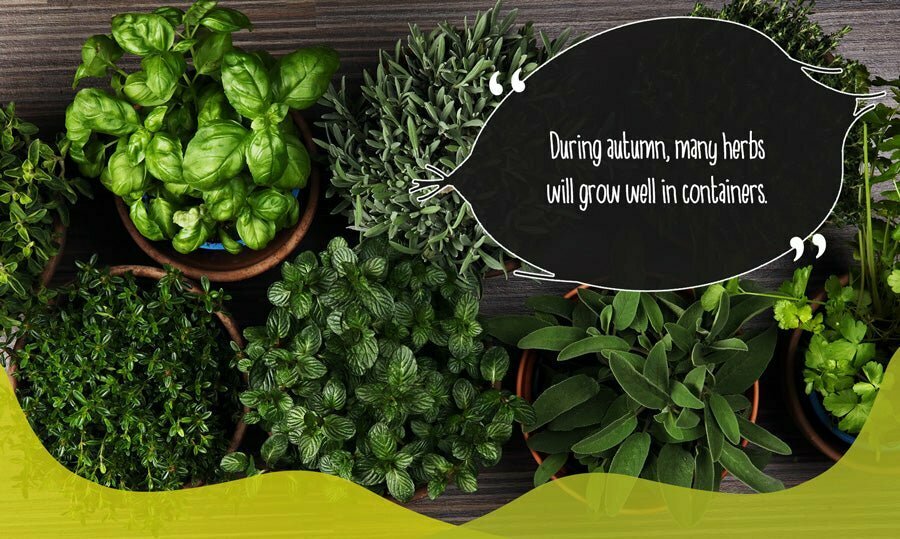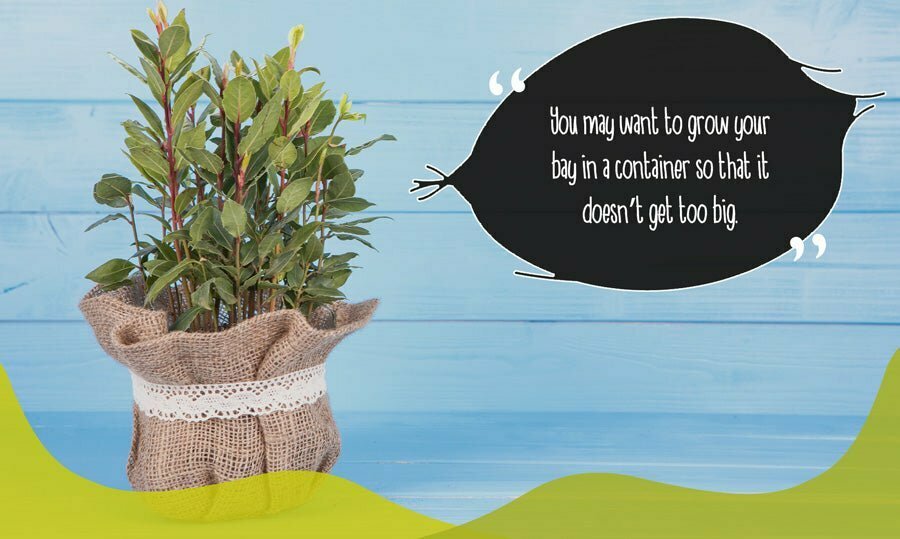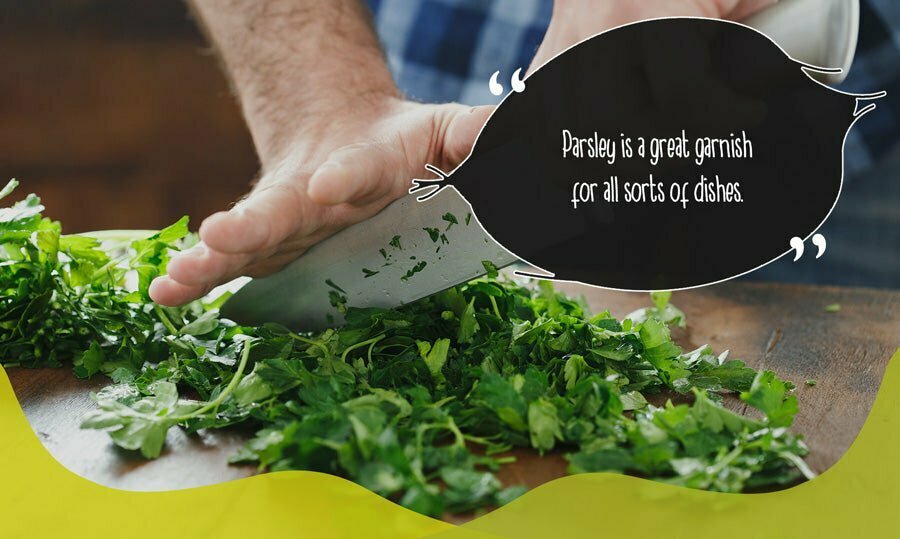What herbs are good to plant in autumn?
Nothing beats fresh herbs: whether you’re cooking with them, using them for tea or medicinal purposes, or just enjoy the smell of fresh, homegrown plants.
Most herbs can be grown inside or outside. In autumn, many will grow well in containers on a windowsill until the spring.

Growing mint in autumn
Mint is one of the most versatile and resilient herbs out there. It’s great for cooking, tea, or even in a cool drink.
It is fully hardy, grows almost anywhere and will survive most frosts. Provided the plant isn’t too tiny and delicate, you could plant it outside. However, it would be better to plant it inside first, and then plant it out in spring.
It’s best to grow mint in a container otherwise it can take over a flower bed. If you have mint growing outside through autumn into winter, cut it back and consider using a natural peat-free compost like coco coir.
Bay plants in a home garden
A staple herb for any cook, bay is a hardy evergreen which requires little maintenance. You can use bay in casseroles, pasta dishes, pies, and lots more.
Depending on the size of your garden, you may want to grow your bay in a container so that it doesn’t get too big.
During autumn, don’t try to grow bay outside from a seedling. However, if you have bought an established plant, you can plant it outside. Just make sure you protect it from frost.
Bay trees need feeding during their growing season. In spring, add some slow-release, balanced fertiliser or organic matter (mulch) to the topsoil.

Fresh chives for added flavour
Chives are delicious in salad, pizza, and pasta dishes. If you’re growing them from seed, you need to do so in spring. However, if you’ve bought plants from a garden centre, you can plant them outside.
Before purchasing plants, check whether they were kept outside before bringing them home. Although they are hardy, you may want to protect chives from severe weather. They do well in a deep container, which you can bring indoors.
If you choose to grow chives in a container or from seed, you should use a good quality potting mix.
Sage for any season
Sage is great for making stuffing and with chicken. If you are planting your sage for the first time, allow it to spend winter inside or somewhere protected from the cold.
You can grow sage from seed or cuttings, but this should be done in spring and early summer. It also does well in containers and in colder areas. Containers are better because they can be moved indoors.
While sage is fairly low maintenance, it doesn’t like too much water. Ensure it’s in a well-drained spot. If you’re planting it outside, use manure or a good compost, and choose a sheltered spot, protected from strong winds, in full sun.
Potted parsley
A great garnish for all sorts of dishes, parsley is commonly grown in spring and summer. However, it is possible to grow parsley in winter.
The herb will not necessarily thrive in cold weather. It can ‘bolt’ due to cold weather (i.e. prematurely produce a seed stalk). If you want to try planting it in autumn, it’s best to protect it by planting in containers that can be stored inside.
If planting outside, garden soil on its own will not be enough. You will need to add rotted compost and some mulch. If potting your parsley up indoors, add a potting compost to the soil.

The right thyme for an aromatic herb
Thyme is easy to grow and comes in many varieties. When growing, it will need protection from cold winds and wet, winter weather.
You can grow thyme in a container – although it won’t like being in a container with other plants. It’s quite hard to grow from seed, so consider buying a thyme plant from your local garden centre.
Thyme likes well drained soil and doesn’t need too much help. Plant it in a good, slow-release fertilised compost which offers good aeration and water retention.
Coco coir: the perfect solution for autumnal herb growing
Whichever herbs you choose to raise before the end of the year, our coco coir options will give your plants exactly what they need to endure the cold winter months.
Our coco boost all-purpose compost provides a controlled release of nutrients which feeds for up to six months and produces healthy foliage, strong root development.
If you need to ensure protection from the cold, applying coir mulch to topsoil will help. Particularly useful with bay or parsley, our coco chip mixture will help retain soil moisture and reduce weed growth. Natural mulch will also protect roots from cold and frosts.
In addition, coco grow can be added to a potting mix when raising chives or parsley. This will increase the porosity of the soil and keep it loose.
To see the complete range of coco coir products we supply, or if you need to check on stock or quantity options, check out our online store.










